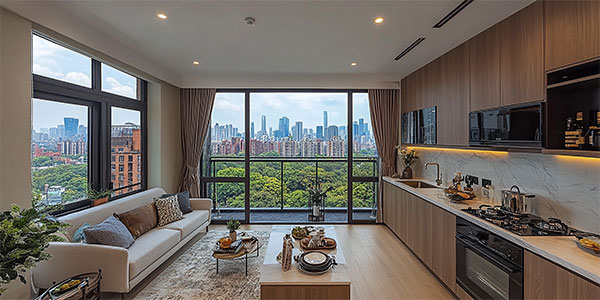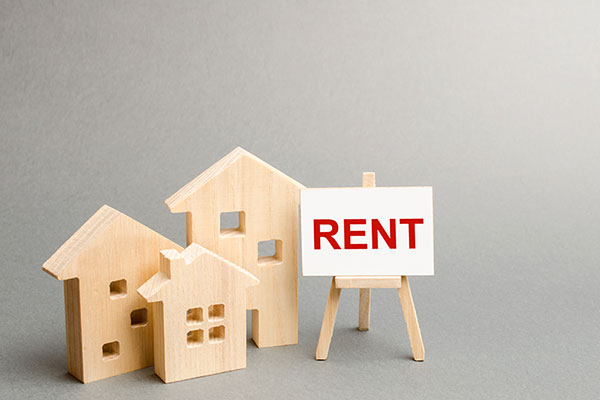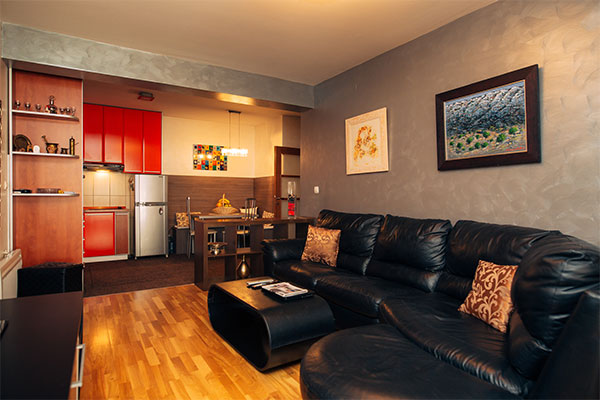Finding the right rental in the Greater Toronto Area presents a unique challenge. With average rents continuing to climb and inventory remaining tight, renters must carefully evaluate their options to find the best fit for their budget, lifestyle, and long-term goals. The most common decision facing GTA renters? Apartment vs basement rental—two fundamentally different housing types, each with distinct advantages, drawbacks, and ideal tenant profiles.
Understanding the true differences between these rental types goes far beyond just comparing monthly costs. Factors including privacy, amenities, location, lease stability, utilities, parking, and lifestyle compatibility all play crucial roles in determining which option serves you best. Making the wrong choice can mean months of frustration, unexpected costs, or compromised quality of life in one of Canada’s most expensive rental markets.
This comprehensive guide examines apartments and basement rentals across every relevant dimension, providing the insights you need to make an informed decision that aligns with your priorities, budget, and lifestyle in the competitive GTA rental market.
Understanding the GTA Rental Landscape
Before diving into specific comparisons, it’s important to understand the current state of GTA rentals and why this decision matters more than ever.
Current GTA rental market conditions:
- Average one-bedroom apartment rent: $2,100-2,600 (varies by location)
- Average basement apartment rent: $1,400-1,900 (varies by location and quality)
- Vacancy rates remain below 2% across most GTA municipalities
- Competition for quality units is intense in all price ranges
- Both apartments and basements see multiple applicants for each listing
This competitive environment means securing any rental requires speed, preparation, and a clear understanding of what you’re looking for. Wasting time pursuing the wrong type of rental or making a hasty decision you later regret is costly in both time and money.
Cost Comparison: Beyond Base Rent
Monthly rent is important, but total housing costs tell the complete financial story.
Base Rent Comparison
Typical GTA pricing (one-bedroom):
- Purpose-built apartment: $2,100-2,800
- Condo apartment: $2,200-3,000
- Basement apartment: $1,400-2,000
Basements offer 30-40% lower base rent in similar neighborhoods, creating significant monthly savings. For budget-conscious renters, this difference is often decisive.
Utilities and Additional Costs
The base rent comparison changes dramatically when utilities are factored in:
Apartments:
- Often includes heat and water in rent
- Typically pay only electricity ($50-100/month)
- Some include all utilities
- Predictable monthly costs
Basement rentals:
- Frequently exclude all utilities
- Tenant typically pays heat, water, and electricity ($150-300/month depending on season and size)
- Less predictable costs, especially winter heating
- May share utility costs with upstairs, creating potential for disputes
Total cost example:
- Apartment: $2,400 rent + $75 electricity = $2,475/month
- Basement: $1,700 rent + $200 utilities = $1,900/month
- Real savings: $575/month or $6,900 annually
Parking and Storage Costs
Apartments:
- Parking is often available for $100-200/month, additional
- Dedicated, secure parking spot
- Building storage lockers is typically available
Basements:
- Parking is sometimes included in the rent
- May be shared driveway or street parking only
- Limited or no additional storage beyond the unit
Factor these costs into your total housing budget when comparing options.
Privacy and Living Independence
Privacy significantly impacts quality of life but is difficult to quantify financially.
1. Noise and Disturbance Levels
Apartments:
- Noise from neighbors on all sides (above, below, adjacent)
- Hallway traffic and common area noise
- Building mechanical systems (elevators, HVAC)
- Generally better sound insulation in newer buildings
- Shared walls with multiple units
Basements:
- Footsteps and noise from above (often significant)
- Tenant is typically quieter upstairs than vice versa
- Fewer shared walls
- Outdoor noise is more audible (windows at ground level)
- Variable soundproofing quality
Reality: Neither option offers complete privacy. Apartments have more noise sources but more consistent soundproofing. Basements have fewer neighbors, but the upstairs residents directly impact your experience.
2. Entry and Common Spaces
Apartments:
- Private entrance to the building, not to the unit
- Share lobbies, hallways, elevators
- Less interaction with the landlord
- Anonymous urban living experience
Basements:
- Often separate entrance from the main house
- Sometimes shares an entrance with upstairs
- May encounter the landlord regularly
- More personal landlord-tenant relationship
For renters who value privacy and minimal landlord interaction, apartments typically provide more separation. Basements vary dramatically—some have completely separate entrances, others require passing through or by the landlord’s space.
time to buy real estate in Canada
Amenities and Features Comparison
The amenities available in each rental type differ substantially.
1. Apartment Building Amenities
Modern apartment buildings, especially condos, offer amenities that basement rentals cannot match:
Common apartment amenities:
- Fitness centers and gyms
- Party rooms and social spaces
- Rooftop terraces or outdoor areas
- Concierge or security services
- Package receiving and storage
- Guest parking
- Pet washing stations
- Bike storage and repair facilities
Value consideration: If you’d pay for a gym membership ($50-80/month) or need guest parking regularly, apartment amenities provide real financial value beyond the convenience factor.
2. Unit-Specific Features
Apartments typically offer:
- Larger windows with more natural light (especially higher floors)
- Better views (not always, but often)
- Balconies or terraces (many units)
- In-suite laundry or building laundry facilities
- Climate control systems
- Modern finishes and appliances
- Professional property management
Basements typically offer:
- Smaller windows, less natural light
- Garden or ground-level access
- More likely to include in-suite laundry
- More varied quality (some excellent, some substandard)
- Older appliances and finishes are common
- Individual landlord management
For professionals who work from home, the natural light and modern workspace features of apartments often justify the price premium. For those primarily sleeping at home, basement features may suffice.
For renters exploring Mississauga’s diverse rental market—from Port Credit’s waterfront high-rises to suburban family neighborhoods with basement options—working with experienced realtors in Mississauga provides crucial advantages in identifying available units before they’re widely advertised, understanding building quality and reputation, navigating competitive application processes, and negotiating favorable lease terms. Mississauga’s size and diversity mean rental quality varies dramatically between neighborhoods and buildings, making local expertise essential for finding units that offer genuine value rather than just accepting whatever becomes available when you need to move.

Location and Neighborhood Considerations
Where you can live with each rental type differs significantly.
1. Geographic Distribution
Apartments concentrate on:
- Downtown Toronto
- Mississauga City Centre
- North York
- Scarborough high-density corridors
- Transit hubs and major intersections
Basements concentrate on:
- Established suburban neighborhoods
- Residential areas with single-family homes
- Further from transit and urban cores
- Lower-density neighborhoods
Implication: If living car-free and using transit is a priority, apartments near subway stations become nearly mandatory. If you drive and prefer quieter residential areas, basements offer more options.
2. Neighborhood Character
Apartment neighborhoods tend to be:
- Urban, walkable, dense
- Restaurants, shops, services within walking distance
- Younger, more transient populations
- Vibrant but less community-oriented
- Convenient but potentially louder
Basement neighborhoods tend to be:
- Suburban, car-oriented, quieter
- Residential with established communities
- Older, more stable populations
- Family-oriented with schools and parks
- Quieter but potentially isolated
Neither is inherently better—it depends entirely on your lifestyle preferences and stage of life.

Lease Stability and Tenant Rights
Legal protections and lease stability differ between rental types in important ways.
1. Legal Protections Under Ontario’s RTA
Both apartments and basements fall under the Residential Tenancies Act if they’re self-contained units. However, basements that share a kitchen or bathroom with the owner are exempt from RTA protections.
RTA protections include:
- Rent increase limits (guideline is 2.5% for 2024)
- Protection from arbitrary eviction
- Maintenance standards enforcement
- Dispute resolution through the Landlord and Tenant Board
- Notice period requirements
Critical question for basement rentals: “Is this unit self-contained with its own kitchen and bathroom?” If not, you have significantly fewer legal protections.
2. Lease Stability
Apartments:
- Professional property management
- Less likely to face owner-move-in evictions
- More stable long-term rental options
- Corporate ownership means less personal variability
- Clear policies and procedures
Basements:
- Individual homeowner landlords
- Risk of the owner’s family needing space
- Potential for property sale affecting tenancy
- More variable landlord quality and professionalism
- Personal relationships can be positive or negative
For renters seeking long-term stability, purpose-built apartments generally offer more predictability than basements, where homeowner circumstances can change.
Lifestyle Fit: Who Should Choose What?
Different rental types suit different tenant profiles and life stages.
1. Ideal Apartment Tenants
Apartments work best for:
- Young professionals prioritizing location and amenities
- Car-free individuals depending on transit
- People who work from home and need good natural light
- Social individuals who value building community
- Those who prefer minimal landlord interaction
- People want a gym, party room, and other amenities
Example profile: Marketing professional, late 20s, works downtown, uses TTC, enjoys building gym and social events, willing to pay a premium for convenience and location.
2. Ideal Basement Tenants
Basements work best for:
- Budget-conscious renters maximizing savings
- People with cars who don’t depend on transit
- Those comfortable with less natural light
- Individuals who prefer quiet residential neighborhoods
- Students or recent graduates building a financial foundation
- People who don’t need building amenities
Example profile: Graduate student or early-career professional, drives to work/school, values savings over location, spends limited time at home, comfortable with basic accommodation.
tips for buying a condo in Ontario
Practical Considerations for Each Option
Beyond the major factors, several practical considerations influence daily quality of life.
1. Maintenance and Repairs
Apartments:
- Professional maintenance teams
- Faster response times (typically)
- Clear protocols for requesting repairs
- Building superintendent or manager on-site
- Less tenant responsibility for minor issues
Basements:
- Dependent on individual landlord responsiveness
- Variable quality and speed of repairs
- May require the tenant to identify and report issues the landlord doesn’t see
- Personal relationship affects maintenance experience
- Some landlords are excellent, others are negligent
2. Entry and Exit Logistics
Apartments:
- Moving can be challenging (elevators, narrow hallways, elevator booking required)
- Building move-in/out policies and restrictions
- May require security deposits for moves
- Easier to receive deliveries (lobbies, concierge)
Basements:
- Easier physical access for moving
- Fewer restrictions on moving times
- Direct ground-level access is beneficial
- More challenging for large delivery acceptance if you’re not home
3. Pets and Pet Policies
Apartments:
- Many buildings have no-pet policies or size/breed restrictions
- Pet deposits and pet rent are common ($25-50/month)
- Access to elevators for walking dogs
- Limited outdoor space for pets
Basements:
- More variable—some landlords love pets, others prohibit them
- May have yard access for pets
- Typically, less formal pet fees
- Negotiate directly with the homeowner
For pet owners, basements with yard access can be ideal, but many basement landlords also prohibit pets. Always clarify pet policies before applying.
For renters considering Oshawa’s more affordable rental market—where both apartment buildings and basement options provide better value than Toronto’s core while maintaining GO Train access—consulting with knowledgeable realtors in Oshawa helps navigate the region’s unique rental landscape. Oshawa’s rental market offers opportunities for significantly lower housing costs while staying connected to Toronto’s employment centers, but quality varies widely between different buildings and neighborhoods. Experienced realtors in Oshawa understand which apartment buildings offer good management and maintenance, which basement-rich neighborhoods provide safe and convenient living, and how to balance affordability with reasonable commute times and neighborhood amenities for renters prioritizing value without sacrificing too much convenience.

Making Your Decision: Key Questions to Ask
Use these questions to guide your choice:
Budget questions:
1. What’s my maximum all-in monthly housing budget, including utilities?
2. Can I afford apartment prices, or is a basement necessary for financial goals?
3. Am I willing to pay a premium for amenities I’ll actually use?
Lifestyle questions:
4. How important is natural light and modern finishes to my daily happiness?
5. Do I need to be near transit, or will I drive everywhere?
6. Am I home enough to justify paying for premium space and amenities?
Practical questions:
7. How long do I plan to stay (6 months, 1 year, 3+ years)?
8. Do I have pets or plans to get pets?
9. How important is privacy and minimal landlord interaction?
Priorities questions:
10. What matters most: location, price, amenities, space, or stability?
Your answers should clearly point toward one option or the other. If you’re still uncertain, prioritize your top two factors and choose the rental type that best delivers on those priorities.
Red Flags to Watch For
1. Apartment Red Flags
- Numerous negative online reviews mentioning pests, maintenance issues, or management problems
- Units available when similar buildings are fully occupied
- Pressure to sign immediately without proper viewing or time to consider
- Older buildings with no recent renovations or updates
- Lack of clear lease terms or dodgy paperwork
2. Basement Red Flags
- No separate entrance (unless you’re comfortable with that)
- Limited natural light, even during daytime viewing
- Signs of moisture, mold, or water damage
- Landlord is hesitant to put the agreement in writing
- Unclear utility payment arrangements
- Safety concerns (egress windows, smoke detectors, proper heating)
- Landlord trying to avoid RTA by claiming sharing kitchen/bath when the unit is actually self-contained
Walk away from any rental—apartment or basement—where you notice multiple red flags or feel pressured to decide without proper consideration.
Frequently Asked Questions (FAQ)
Q. Are basement apartments legal in the GTA?
Basement apartments are legal if they meet building code requirements, including proper ceiling height (6’5″ minimum), egress windows, separate HVAC, and proper electrical. However, many basement rentals operate in legal gray areas. Ask landlords if the unit is registered and meets code. Legal basements are safer and provide stronger tenant protections.
Q. Which option is safer: apartments or basements?
Purpose-built apartments generally offer more security features (controlled entry, security cameras, on-site staff) and are built to strict safety codes. Basement safety varies dramatically based on whether the unit meets code. Legal, properly constructed basements are safe, but illegal suites may lack proper fire safety, egress, and structural standards. Always verify safety features regardless of rental type.
Q. Can I negotiate rent more easily with apartments or basements?
Individual basement landlords may be more open to negotiation, especially if you’re offering long-term tenancy, upfront payment, or flexibility on move-in dates. Large apartment buildings have less flexibility on base rent but may negotiate on parking, move-in dates, or included utilities. In tight markets like the GTA, negotiation power is limited for both types regardless.
Q. How do utilities typically work in each type?
Apartments usually include heat and water, with tenants paying only for electricity. Some include all utilities. Basements frequently require tenants to pay all utilities separately or as a fixed amount added to rent. Always clarify utility arrangements before signing. Ask to see previous utility bills to understand actual costs.
Q. Which is better for students or recent graduates?
Basements often suit students and recent graduates better due to lower costs during financially constrained years. However, apartments near campus or transit eliminate commute costs and time. Calculate total costs (rent + utilities + transportation) for fair comparison. Students who can afford apartments often appreciate the amenities and social opportunities building living provides.
why to invest in Calgary real estate
Conclusion: Choose Based on Your Priorities
The apartment vs basement rental decision ultimately depends on your unique circumstances, priorities, and stage of life. Neither option is universally superior—each serves different tenant needs and preferences.
Choose apartments if you prioritize location, amenities, natural light, professional management, and are willing to pay premium prices for urban convenience and modern living. Apartments suit professionals who spend considerable time at home working remotely, value building amenities they’ll use regularly, and prefer minimizing landlord interaction.
Choose basements if your budget is your primary constraint, you have a car and don’t depend on transit, prefer quieter residential neighborhoods, and can accept trade-offs in natural light and amenities for significant monthly savings. Basements work well for those focused on financial goals, comfortable with simpler accommodations, and who spend limited time at home.
The GTA’s rental market offers both options across a range of quality levels and price points. Take time to view multiple properties of both types, calculate true all-in costs including utilities and transportation, and honestly assess which trade-offs you’re willing to accept.
Your housing choice significantly impacts your daily quality of life, financial health, and overall satisfaction. Making this decision thoughtfully—considering not just monthly rent but the complete package of costs, location, amenities, and lifestyle fit—ensures you find a rental that genuinely serves your needs in the Greater Toronto Area’s competitive housing market.
Start your search with clarity about your priorities, a realistic budget including all costs, and openness to both options. The right rental for you exists—it’s just a matter of understanding your needs well enough to recognize it when you find it.

